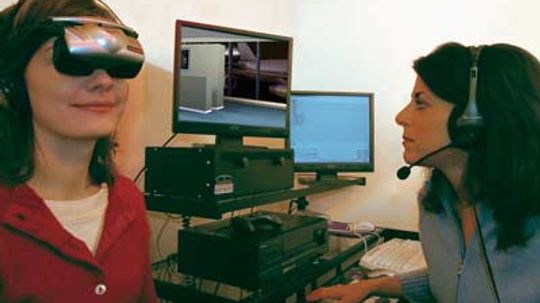Intriguingly, the remarkable strides made by medical professionals in harnessing virtual reality (VR) technology to combat phobias have unveiled a realm of possibilities that were once deemed inconceivable. This groundbreaking approach has not only revolutionized conventional treatment methods but also paved the way for a new era of therapeutic interventions. Delving into uncharted territories, doctors are now utilizing VR as an innovative tool to confront and conquer deep-seated fears with unprecedented efficacy.
The Paradigm Shift: A Quantum Leap Towards Overcoming Phobias
Embarking on this transformative journey, doctors have recognized the immense potential of VR as an invaluable asset in treating phobias. By immersing patients into simulated environments tailored to their specific fears, this cutting-edge technology enables them to confront their anxieties head-on within a controlled and safe setting. Through gradual exposure therapy facilitated by VR simulations, individuals can gradually desensitize themselves to distressing stimuli while simultaneously building resilience and confidence.
A Multisensory Voyage: Amplifying Therapeutic Outcomes through Immersive Experiences
Beyond its mere visual prowess, VR’s immersive nature allows for a multisensory experience that amplifies therapeutic outcomes exponentially. By integrating auditory cues and haptic feedback systems into these virtual realms, doctors can create an environment so convincingly realistic that it triggers genuine emotional responses from patients. This heightened sense of immersion fosters deeper engagement during therapy sessions and facilitates more profound psychological breakthroughs.
Pioneering Precision: Tailoring Treatment Plans with Unprecedented Customization
One notable advantage offered by VR-based phobia treatment lies in its unparalleled customization capabilities. Doctors can meticulously tailor each simulation according to individual patient needs – adjusting the intensity, duration, and complexity of exposure to ensure optimal therapeutic outcomes. This level of precision not only enhances treatment efficacy but also allows for a personalized approach that caters to the unique fears and triggers experienced by each patient.
Embracing a Promising Future: The Impending Integration of VR in Mainstream Medicine
The integration of virtual reality into mainstream medicine marks an exciting turning point in the field of phobia treatment. As this technology continues to evolve, it holds immense promise for addressing various mental health conditions beyond phobias – from anxiety disorders to post-traumatic stress disorder (PTSD). With ongoing advancements and refinements, doctors are poised to unlock even greater potential within this transformative tool, revolutionizing how we perceive and conquer our deepest fears.


